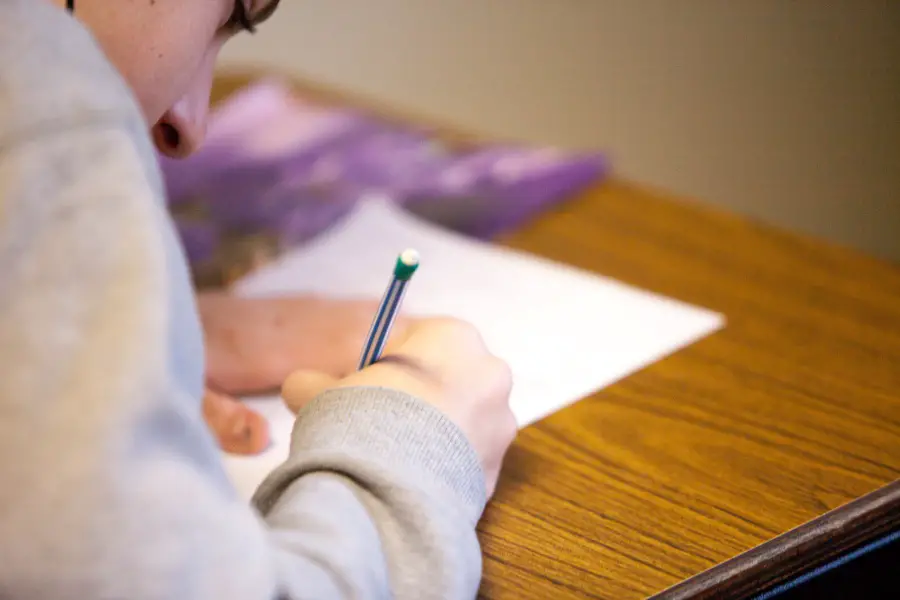How to Help your Kids Prepare for a Test

Your children are at the age of learning how to study for tests.
Now it’s your time as parents to help them to develop good study habits. It depends on your child and whether they are learning disabled or are not. When your child is struggling with study habits, then you have to learn patience and help them to retain the information. By first grade, children usually are beginning to have spelling tests. If your child struggles, then normally the teacher will challenge the child with 10 words. If your child doesn’t struggle, then the child is challenged with 15 to 20 words. Kids usually work with their teacher and in groups to prepare during the week for their spelling test. In addition, spelling words for first graders are usually sent home at the beginning of the week, so it’s important for parents to go through their backpacks to make sure they haven’t missed anything. As children start to progress into higher grades, parents will have to expect more homework and be there to help their children retain important information. This includes reading, grammar, math, science, English and most importantly, reading comprehension. If you have a child that is struggling in school, talk to their teacher and come up with a game plan. If your child needs medication to focus, then you will have to help them learn how to comprehend what they are studying and teach them about deadlines.
This also carries over into high school.
It’s very important that your child learns good study skills starting at a young age so they can carry these skills with them into their college years and into the workplace. Some jobs require entrance exams with mathematical calculations, so it’s good for all kids to remember simple equations and basic math in order for them to qualify for certain jobs in their future. It’s also important for children to learn how to write legibly, so if your child has a composition that is part of a reading test, the teacher can read what they are writing. Grammar is very important when helping your child learn how to study. Parent’s should remember that all writing should be clear, concise and to the point. When kids take a test, also teach your child to read the directions and if they have a question, raise their hand and ask the teacher.
All children should have a notebook or a binder with loose-leaf paper with dividers for every class for taking notes. You and your children can sit down and arrange all subjects into an order that works for them. This is where they should jot down good notes and all schools give children a daily planner. Parents should help their children with their planner so they know that this is where they write down test dates, school events, vacations, important information and when assignments and projects are due.
A good rule of thumb is to study with your child about 20 minutes a night or after school daily, before the test approaches.
You can also use flash cards or index cards and read the questions and have them tell you the answer. Cramming is not good because the child will just become frazzled and tired and forget most of the information. A child will retain the answers to a test if they study a few times a day and do this for 15 to 20 minutes daily. This also teaches them how to gain more confidence in test-taking abilities, when they pass their test. If they have exams coming up, use the same protocol if they need your help. Usually, by the time kids are in high school, they start asking if a friend can come over so they can study together if they are in the same classes.
 Some tests have projects that are due and there are directions for how to construct the projects and different categories your child can choose from. Most of these projects can count for 30 to 40 percent of their grade, so this is extremely important that parents are available to help get their child off on the right track. Make sure you and your child read all the directions before your child starts on any of their projects. Teach your child about using their critical thinking skills when they are preparing for a test and on the day they take the test. If they get stuck on a multiple choice, usually they should go with the answer that sounds the most logical. Multiple choice tests and exams are tricky because the question can be read correctly. It has been said that when students erase and choose another answer because they are confused, it’s better to stick with the original answer they chose in the first place.
Some tests have projects that are due and there are directions for how to construct the projects and different categories your child can choose from. Most of these projects can count for 30 to 40 percent of their grade, so this is extremely important that parents are available to help get their child off on the right track. Make sure you and your child read all the directions before your child starts on any of their projects. Teach your child about using their critical thinking skills when they are preparing for a test and on the day they take the test. If they get stuck on a multiple choice, usually they should go with the answer that sounds the most logical. Multiple choice tests and exams are tricky because the question can be read correctly. It has been said that when students erase and choose another answer because they are confused, it’s better to stick with the original answer they chose in the first place.
Parents need to make sure that their child doesn’t rush through the answers to be the first one done. Tell your kids to take their time and answer every question or write out the answers for the questions if those are the directions.
Once you start helping your first grader study those weekly spelling tests, parents will find themselves waiting in anticipation to see what their child’s grade was. If they get a few wrong, tell them they did their best if you know they did. Just don’t put them down if they have problems retaining information. You can always tell them well next week things will get better. If you know your child didn’t try at all because they had the words all right at home, make sure they didn’t have an anxiety attack about test taking before you talk to them about their grade. There are some children, tweens, and teens including college students that still have great anxiety when it comes to test taking. The majority of children usually do pretty well when it comes to taking a test. The key is they have to be organized and prepared for tests.
If your child has Attention Deficit Hyperactivity Disorder (ADHD), you are probably going to have to help them learn how to keep their lockers straight. Some of these children really have a rough time with organizational skills and lose their homework quite frequently. This is very frustrating for your child and for parents, but remember that these kids need a hand up and it’s your job to help them succeed. You can still use notecards, help them stay organized and test them to see if they understand what they are reading. If they don’t, you can speak to their teachers no matter what age they are and either an aide or another student that is older will read the questions to your child. This usually helps tremendously and the child can take the test in a private room or the library so things are quiet and they are not distracted. It’s amazing the confidence your child will gain even if they realize they have learning disabilities. They aren’t the only one in their class or in their school for that matter and the school has changed so much in the last 25 years in order to mainstream students of all backgrounds and with all disabilities.







